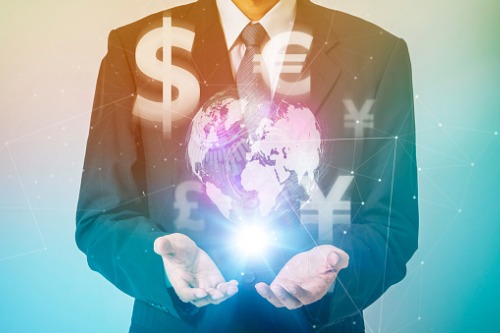Analyst compares Obama era to Trump reign and says investors need to look at the numbers not personalities

Emotionally driven political biases mean people are overestimating the real impact of the Trump-instigated trade wars, according to a Wisdom Tree asset allocation analyst.
After the US president announced yesterday he would terminate the North American Free Trade Agreement and sign a new accord with Mexico, potentially isolating Canada, Jeff Weniger said the psychology of how investors view the “leader of the free world” is clouding judgment.
He said that people want to see Trump fail so badly they have “mestastasized this trade war into being something much bigger than it really is”.
The result, he believes, is that many have overlooked proposed changes to the China tax code – a response to tit-for-tat tariffs with the US – which is designed to build out the country as a consumption-based economy and free up capital on an individual level.
Weniger said that in the same way the anti-Barack Obama brigade falsely declared he would destroy the economy, this is now happening with those left of centre who are vehemently opposed to Trump.
“They need to stop caring so much about Trump and start caring about the numbers,” he said, adding that the magnitude of the China tax cuts would at least equal Trump’s own tax reform and could be worth up to about US$1.5-2 trillion over the next 10 years.
“I see this especially in Canada because it tends to be farther to the left than the US. People are looking at their emotions and they want to take cultural issues and hate Trump for this reason and that reason.
“The reality is we have to take emotions out of the equation. We have to take personalities out because the data, and this is the crux of the argument, is that Chinese tax code changes we may see in reaction to Trump’s hostility to China, could exceed anything deleterious to the markets or anything we have preconceived notions with.”
Weniger said that despite the scaremongering, unlike in the 1930s when the trade war involved a host of countries, this one is simply the US versus the world, with everyone else getting along fine.
It means if you analyze the markets, he believes there are opportunities, with Japan signing an “epic” trade deal with Europe, the British in good relations with old Commonwealth nations as they deal with Brexit and China putting themselves out there as, somewhat ironically, the free market for free trade.
In short: things are not as bad it seems, just like things were not as bad as some would have you believe when Obama was in power and huge fiscal stimuli from his administration ($787 billion) and China ($586 million) led the US out of the financial crisis.
Weniger said: “It was setting up what was and has proven to be a bull market of epic proportions, especially in the United States when the S&P was at 666 and now it’s in 2,800s. It’s a quadruple!
“That’s when my mind [went back] to talking to friends and family. They loved Obama and they hated Obama and I feel like what has happened here is there are so many people that want to point to the president of the United States, Trump, but the truth of the matter is it’s a much bigger world.
“The presidency of the United States is obviously a very, very important role but each central banker probably has as much power. Mario Draghi or Jerome Powell are probably as influential or more influential on the global economy as the President of the United States and these days, depending on how you calculate it, China is every bit the same influence if not more than the United Sates.”



